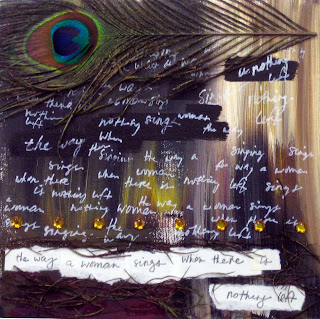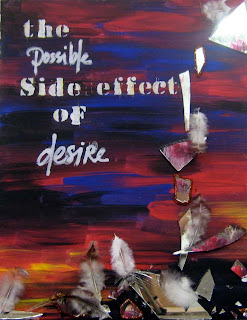
Title: This, my favorite memory.
Ah, what a fine poem to end on. Yes, folks. This is the last of my daily series. I'm wrapping this project up and working on a larger installation, taking what I've learned with these small pieces and putting it into a bigger context. I'll be posting pictures as I progress on the installation. It should only be another week or so before I complete it. I'll give you one hint: the installation is for the poem, Elegy (see Day Fourteen).
This poem, First Winter with You, speaks to the new vocabulary I had to learn when I moved to the east and experienced Winter for the first time. I became fascinated with how the natural world changes. It seemed (and still does seem) so full of mysteries. Ice, in particular, caught my attention. How it changes from day to day, how you can never really trust it (but people do!), how you can make a foot print in soft ice and come back the next day to see your footprint filled with water that has frozen over, like a mold.
Jim, who has grown up with very cold winters, laughs and laughs at me when I make these kind of discoveries. Endearing moments, those ones.
***
First Winter with You
I walk out onto
what should be water
and wonder why
I do not fall through.
I wave at you.
This, my favorite memory.
Not falling through.
I press the heel of my boot
down, dare a crack.
Come through, water.
Come.
You take my hand
and lead me away.
I do not fall through.




























